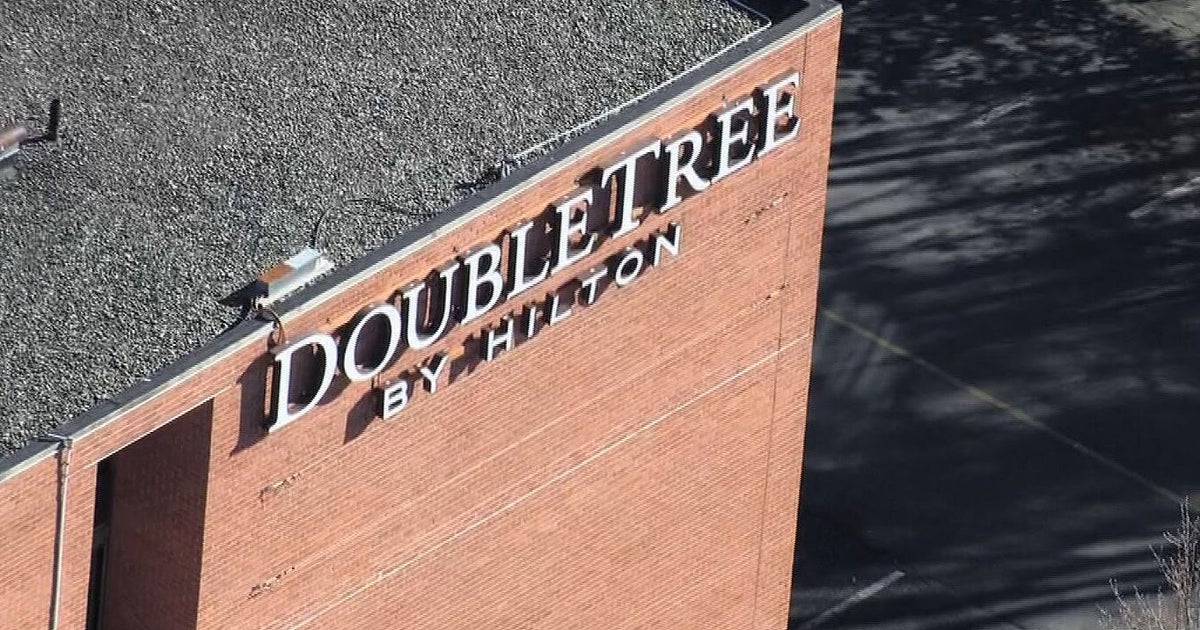I-Team: Stopping The Flow Of Heroin Into Mass.
LAWRENCE (CBS) - When the troopers pull her over, the young mother from a suburban town hands shake as she grabs her license.
She has a gram of heroin and $1000 in cash.
"What do you just drive around the block and then he comes out and hits you up," State Police Sgt. Matt Aumais asks her.
Aumais and the gang unit patrol these streets in Lawrence looking for people dealing heroin and fentanyl.
The woman tells him she initially got hooked on Percocet. She's been trying to get clean. Aumais offers her advice on where to get help.
"You've just got to get yourself right, right now for you and your kid," he says.
Hers is a sad story. It's one state troopers hear all the time.
"If you set up around the city early morning and just sat there and looked for people coming in from the suburbs, you'd be able to spot them for hours," Aumais tells the I-Team.
Lawrence is one hub in an opioid network that spans all of Northern New England, feeding a region with an insatiable addiction problem.
The I-Team got an exclusive look at the daily fight on the street to stop drug deals.
We see license plates from all over the state. Plates from New Hampshire and Maine draw red flags.
Related: On The Front Lines Of The Opioid Crisis
At one point, we come across a known drug trafficker. He'd been arrested with a large quantity of drugs just a few weeks ago.
Aumais says they have success with traditional methods, using information from informants, conducting searches and stopping those coming to the area to buy drugs. Still, he says they can only scratch the surface.
Faced with an overwhelming crisis, the Massachusetts State Police now have moved to a more aggressive, proactive tactic. They are trying to stem the flow of the drugs before they get into the dealers' hands.
Related: The Roots Of Opioid Addiction
"Attack it before it even gets here. In transit. That's our mission," says Sgt. James Bruce of the Drug Transportation Unit.
"Is this a recognition that we need to fight heroin in a different way than we've done other drugs?" the I-Team asked. "Absolutely."
They use intelligence to track how the drugs cross the border from Mexico, making their way first to the New York area and then to Massachusetts.
"We're looking for people with ties nationally and internationally who are importing drugs into the area," Bruce explained.
The unit is relatively new, but has already had some major seizures. Still, this is an uphill battle. Every week large quantities of heroin and fentanyl are smuggled in. No one knows for sure just how much.
The I-Team obtained pictures of drugs hidden in secret compartments of cars and trucks. It arrives over the road, by mail and through the air.
The sheer volume of heroin on the street means the price has dropped significantly in just the past few years.
"I think the word is epidemic," Bruce said.
Still, he believes they are making progress. It is a war State Police must win. "We're not ready to plant the flag just yet," Bruce said. "We have had our victories and I think that we're going in the right direction."
Fentanyl is often mixed with or sold as heroin with deadly consequences. The CDC recently released a report showing in 2014, Massachusetts had the 2nd highest number of fentanyl seizures in the entire country.



